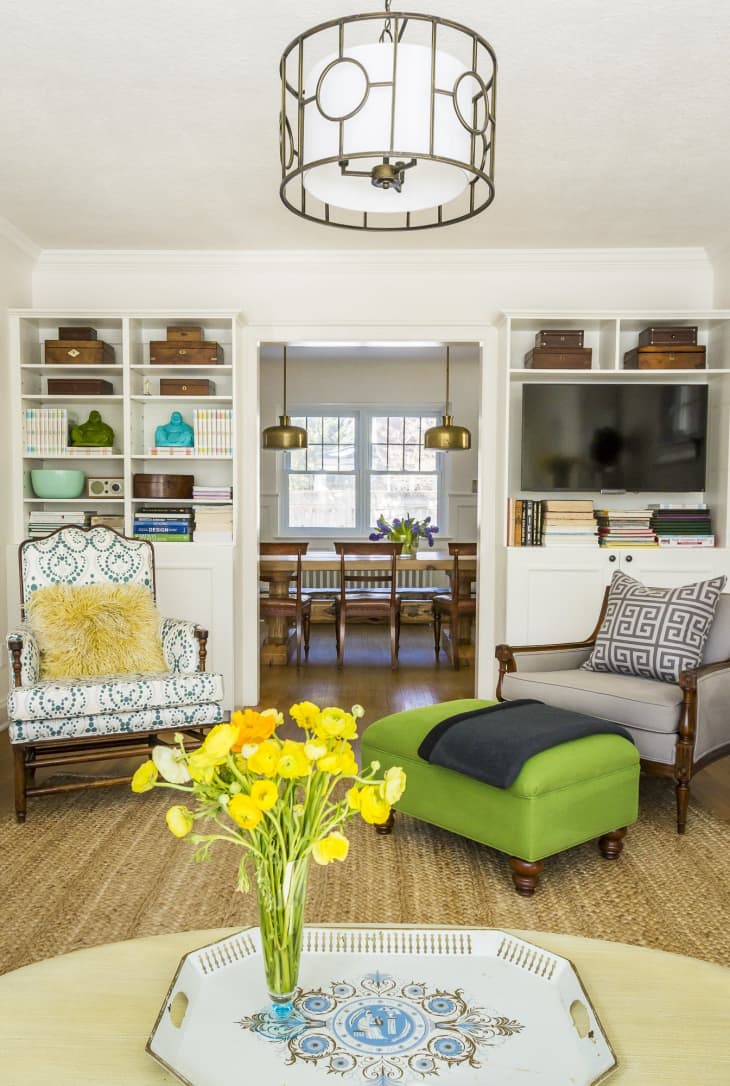Are You a Highly Sensitive Person? How to Set Up Your Home & Routines to Best Fit Your Life

I’ve been reading about the designation of Highly Sensitive People (and greatly identifying with it). Highly Sensitive People are particularly aware of and affected by stimuli in their environment— things ranging from physical objects, light, and sound, to unseen things like others’ moods. The designation was first put forth by San Francisco clinical psychologist Elaine Aron, PhD, and there’s a self-test here. While it’s not possible to control many things that affect them, there are some changes in the home that can help HSPs bring out the best in themselves.
Embrace your love of plants and flowers.
I get much more pleasure out of plants and fresh flowers than most people I know. For years I thought my sister and I just inherited this love from our mother — which we probably did, along with High Sensitivity in general. Although I guess it shouldn’t make a difference, now that I know that my personality type often gets extra joy from flowers (compared to the population at large), I make it a point to always have them on the table and around our home. Even when our garden is dormant, I don’t feel guilty about spending money on flowers at the store. They make me happy, they uplift me, and that feeling spills over to everyone else in the house.
Notice how different light makes you feel.
I’ve known for a long time that I’m particular about lighting and now I know that I am affected more strongly than others. (Yay! I’m not just picky and neurotic!) Overhead lights in the morning and at night stress me out. I need those times of day to be peaceful and calming, a feeling that for me is fostered by the intimate light afforded by lamps and under-cabinet lights.
Identify the times of day that are overwhelming for you and consider why.
I struggle most with two particular times of the day: the morning rush and the pre-dinner hour. Getting rattled by “having a lot to do in a short amount of time” is a classic HSP response. Getting lunches made ahead of time and making sure the kids have something to keep them occupied during dinner prep have been huge helpers in easing the potential blowups that, sadly, have occurred in the past when I get overstimulated by these portions of the day.
Recharge when you need to — without feeling bad.
Because I’m also an introvert (not all HSPs are, though!), I really need time to recover when I’m around a lot of people or noise or chaos. I’m learning that though others around me may not have this need, I don’t need to apologize or feel bad for it. The Introvert’s Guide to a Houseful of People contains some of my strategies for staying sane in a situation that has the potential to drain me, as much as I also enjoy it at the time. Not meeting my need for alone time ends up, in the long run, being much worse for me and everyone around me.
Enjoy the perks.
Being extra sensitive to other’s moods and feelings means that HSPs often tend to be others’ confidantes. Intuiting how others feel and why and what how things affect them can be a real gift. Embrace this and use it to help others, whether it’s at home, among friends, or even in your work.
Communicate, communicate, communicate.
In a society that doesn’t always praise sensitivity, it can be hard for others to understand some of an HSP’s reactions to things that seem either commonplace or just a regular part of daily life. For instance, I can hardly tolerate war documentaries or movies anymore, and I think it’s because I’m an HSP who has her own small sons now. Additionally, I realize mornings are probably hard for many families with young children, but if I don’t make provision to make it more smooth, it can affect my nerves for the whole day. I don’t like that, but I recognize it and therefore try to control it rather than it controlling me. Most importantly, I communicate my needs with my family. I tell my husband that I’m really affected by overhead lights on when we’re winding up or winding down and because he loves me, he tries to accommodate me. I tell my kids, “Guys, it really takes Mommy’s energy when you all try to talk to me at once. Can we please try taking turns?” This is so much better than me being irritable or worse.